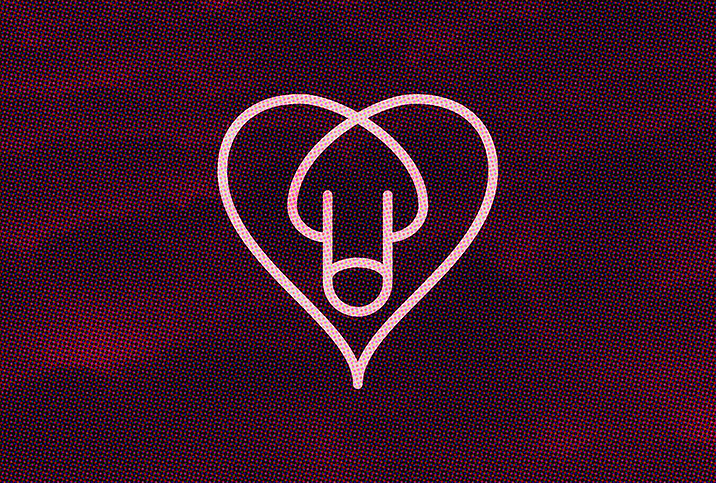Heart Meds Causing Erectile Problems? Tell Someone

Specialization in medicine has upsides. It allows you to see an expert who focuses solely on the body part or ailment that's beleaguering you. These doctors may be cardiologists, urologists, endocrinologists or other specialists.
In the case of heart health and penis health, and how they're connected, cardiologists' core mission—to keep you alive—comes first, according to Petar Bajic, M.D., a member of the American Urological Association and a urologist at the Cleveland Clinic.
"A lot of times when a man goes to see a cardiologist, it's just about making sure the heart is healthy, making sure that blood pressure is low [and] minimizing the risk of cardiovascular disease, which is the most common cause of death in men," Bajic said.
That's good, right?
Sure, because being dead is worse than being flaccid. But heart patients may not realize they should talk to their cardiologists about erectile dysfunction (ED), for example.
Bajic and Niels V. Johnsen, M.D., a urologist at Vanderbilt University Medical Center in Nashville, both say men need to understand key parameters of heart disease and how it relates to the penis. To stay alive and ensure a healthy sex life, men need to become more at ease discussing overall health, not just one facet, with each of their healthcare providers.
Your heart and penis
Study after study points to heart disease as the most common cause of erectile dysfunction, Bajic said. A 10-year survey of male participants by the Mayo Clinic makes this connection clear, and the younger you are, the more likely your ED is linked to cardiac risks.
"If you think about it, this just makes sense," Johnsen said. "The same vascular problems that cause blood-flow issues in the coronary arteries can happen to the blood vessels and arteries that supply the penis."
If you're seeing your primary care physician regularly—this shouldn't be an if at all, by the way—they'll catch early signs of heart problems in bloodwork, electrocardiograms (EKGs) and blood pressure tests.
Subsequently, if you show indications of coronary artery disease and/or hypertension, you should see a specialist, or three. Bajic said this could perhaps greatly extend your life. However, if you're not already experiencing ED caused by heart disease, the medications they prescribe might cause or exacerbate it.
Talk to your doctor about penis-deflating drugs
"I am not going to demean whole classes of drugs," Johnsen said, but he and Bajic agree beta blockers, such as Lopressor, prescribed for cardiac function are common culprits for causing ED. Unfortunately, heart disease and hypertension tend to exhibit in the same patients, which leads to the need for calcium channel blockers, such as amlodipine, to manage blood pressure, as well.
"A lot of times when people have problems with their heart, they also have problems with their blood pressure, and that can require beta blockers, which help with rhythm and blood pressure," Johnsen said.
Some patients excrete excess fluid due to heart conditions, and may then be prescribed diuretics, he explained.
"Great, you got rid of the fluid, but diuretics can impact vascularity, meaning, cause ED," Johnsen added.
Bajic and Johnsen stress that these aren't universal side effects. "Every patient is different," Bajic explained, and no single class of drug is necessarily the sole cause of ED.
In some cases, Johnsen said, ED can be alleviated by substituting one calcium channel blocker for another or for a different beta blocker. Doctors could also try another class of medications called ACE (angiotensin-converting-enzyme) inhibitors, which are typically used to treat high blood pressure.
Say something!
No matter what meds you're taking, if erectile function becomes an issue, the key is to have a conversation with your healthcare provider. Johnsen has studied victims who have recovered from pelvic trauma caused by events such as car accidents, and he said those patients often felt like they shouldn't mention erectile issues to anyone other than a urologist.
"They didn't feel that it was appropriate or important," he said. "What we have to stress is that we have ways to address the problem, whether it's cardiovascular disease or anything else that's causing the ED."
In the end, Bajic said you, the patient, have to raise the issue with either a urologist, a primary care physician or a cardiologist. They cannot read your mind.
A urologist really can be your best friend in this matter.
"I just straight out ask every patient about their erections," Johnsen said. "That's my job, and it's every urologist's job, really."
From there, you can consult your primary doctor as well as your cardiologist to find a healthy remedy, Bajic said.
"If we're doing our jobs, it's a collaboration between all care providers," he said.
But, again, only if you share what's going on.


















